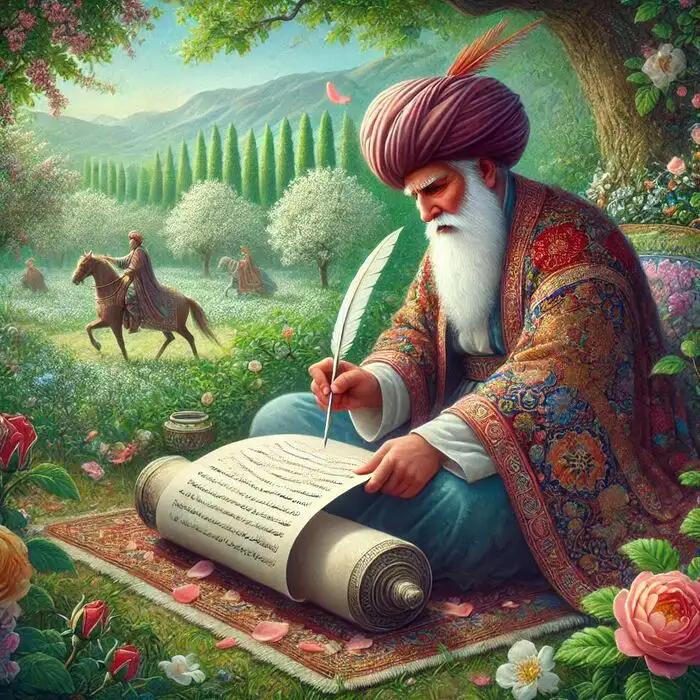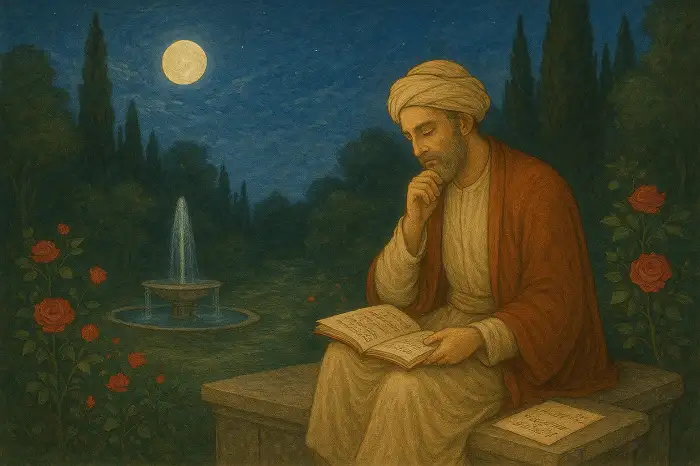Dive into the heart of Persian literary heritage with this exploration of Ferdowsi's Shahnameh. In this post, we showcase ten profound verses that beautifully capture the essence of creation, accompanied by their English translations. Whether you are a poetry enthusiast, a literature student, or simply captivated by the richness of Persian culture, these timeless verses offer a unique glimpse into the depth and wisdom of one of Iran's most celebrated poets. Video of Ferdowsi's 10 Verses from Shahnameh on Creation https://www.youtube.com/watch?v=66iyO_KFJZE Ferdowsi's 10 Verses from Shahnameh on Creation 1. به نام خداوند جان و خرد Be naam-e khodaa-vand-e jaan o ...
Home » Learn Persian Online with 500 Persian Lessons + Videos » Ferdowsi’s 10 Verses from Shahnameh on Creation + Translation

Ferdowsi’s 10 Verses from Shahnameh on Creation + Translation
Updated: by Dr. Mohammad Hossein Hariri Asl
Time to Read: 7 minutes | 552 Views | 2 Comments on Ferdowsi’s 10 Verses from Shahnameh on Creation + Translation
Share This Post
About the Author
Dr. Mohammad Hossein Hariri Asl is an English and Persian instructor, educator, researcher, inventor, published author, blogger, SEO expert, website developer, entrepreneur, and the creator of LELB Society. He's got a PhD in TEFL (Teaching English as a Foreign Language).
Number of Posts: 4242



این یک شعر خیلی زیبا است. برای من بسیار جالب بود که زبان فارسی قدیمی را بخوانم و امیدوارم روزی همه چیز را از شاهنامه فردوسی بفهمم.
خوشحالم که از این شعر فردوسی خوشتان آمده. من هم شعر های شاهنامه فردوسی را خیلی دوست دارم. شاهنامه فردوسی واقعا یک شاهکار ادبی بزرگ و جاودانه است.